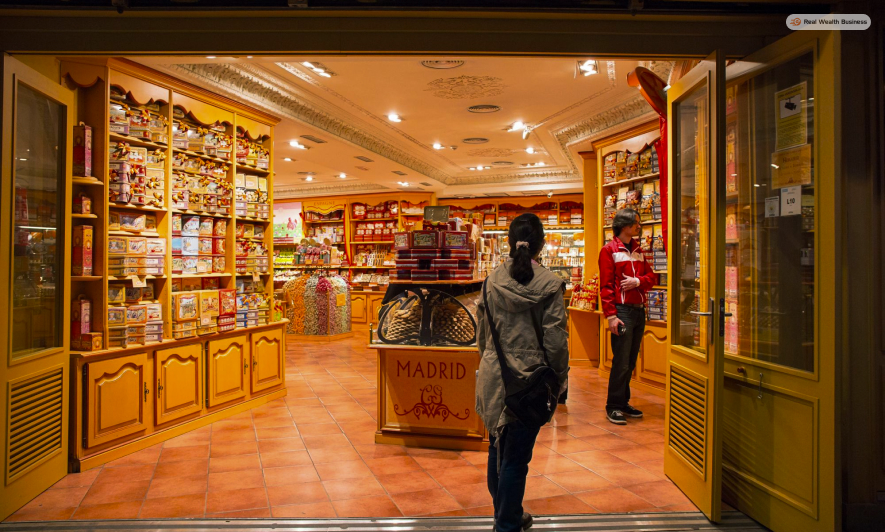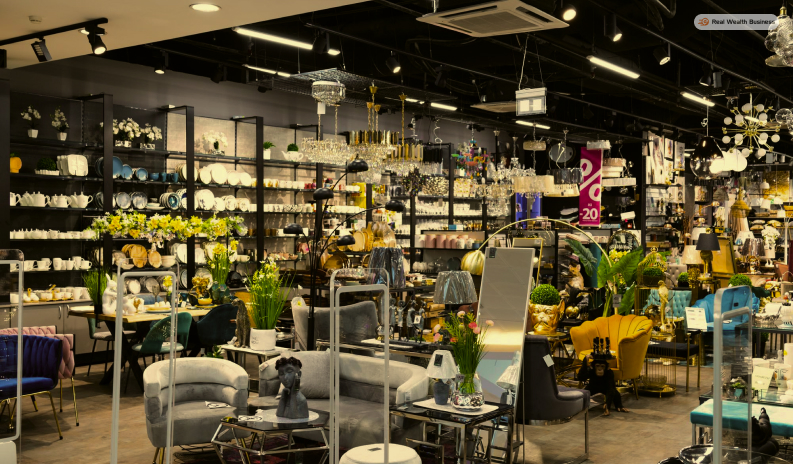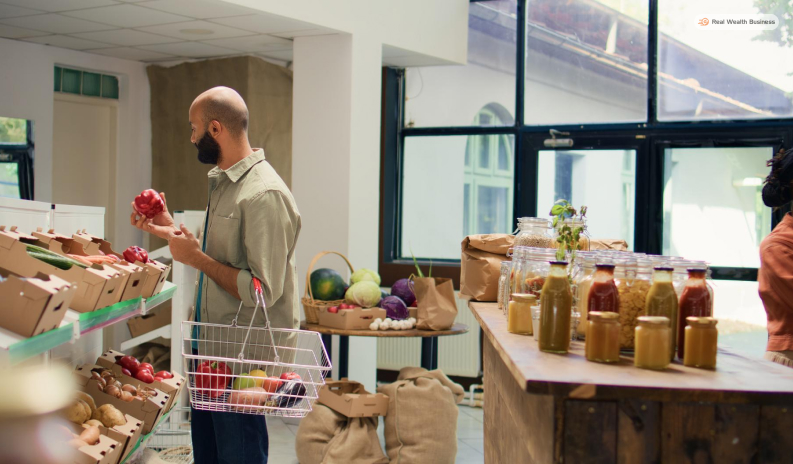Why are Specialty Stores Growing So Fast? Examples from the US
by Ankita Tripathy Business Planning Published on: 28 May 2024 Last Updated on: 12 June 2024

The market for specialty stores is booming in the US. Let’s understand specialty store example.
Wondering what specialty stores are?
They are shops with a wide assortment of brands, styles and models. However, they have a limited category of products. So, most of the specialty stores serve a very particular niche of customers.
The Lego Store is a specialty store example. Well, there is no shortage of specialty stores selling unique and premium products in the US.
I will discuss some popular specialty stores in the US by category. I will also explore why specialty stores are rising in the US market.
A recent Kline Group study found that specialty store sales grew at an 11% YoY rate. However, the average growth of the US retail market is only 4% YoY.
So, there is no doubt that the specialty store market will grow in the US. But do you want to know the factors driving their growth in the US market? Read this article to find out.
What Are Specialty Stores?

Britannica defines specialty stores as highly curated store outlets. There are very few product niches in specialty stores. However, you will get several brands of the respective products sold at a specialty store.
A furniture store is a specialty store example. Other specialty shop examples are bookstores, florists, gourmet product sellers, etc.
One of the specific specialty store examples is The Athlete’s Foot. This store specializes in sports shoes only. To make you understand, an example of a specialty store is the DXL Big+ Tall. This store only sells plus-sized products (mainly clothes and daily-use items) for large and tall people.
Specialty Stores vs Department Stores

I have documented the significant differences between specialty and department stores here. This will certainly help you understand why we need to study specialty stores examples. A detailed study of specialty stores will help us better understand the retail market landscape.
| Specialty Stores | Department Stores |
|---|---|
| They are small shopping places (limited areas and display) | They have large floors and wide spaces for customers |
| Only a few or one broad product niche(s) are available in specialty stores. | A large variety of product niches are found in department stores |
| specialty store example e: Ikea | Department store example: Walmart |
| The target customer is limited | Wide range of target customers |
| Mostly profits from premium product prices | Mostly profits from the volume of sales |
Rise of Specialty Stores in the US

According to a LinkedIn report, the specialty goods industry of the US has three main segments:
- Specialty stores
- Single-line stores like Range Rover
- Shops like fuel retailing
The Kline Group found that most US-based customers now want personalized products. That’s why we saw vertical branding. Most general retailers now open their specialty stores.
I will highlight here the specialty store example of the recent TIP initiative of Sephora. WWD research shows that Sephora’s reinvented specialty store collection is a winner. It might help Sephora to achieve a sales revenue of $10 billion by the end of the financial year 2023-24.
Common Growth Trends
Most brands are opening their flagship specialty stores in the US. All brands can track the highest-ranking products through data analytics. They can also detect the gap in the supply of specific products in the market.
In the meantime, they launch their specialty stores with a broad assortment of those specific products.
One such specialty store example is the opening of around 100 more Ulta stores in FY 2014-15.
That’s not all. I will give you another more relatable specialty store example. NYX, owned by L’Oreal, opened fancy own stores across 13 malls in the US.
Some other boutique specialty stores like Sabon and Rituals opened stores frequently in the US. Therefore, the market for specialty stores is growing fast in the US.
Why do Customers Shop in Specialty Stores?
Experts say that most specialty stores try to use the customers’ loyalty toward a product to their benefit. When you open a specialty store, you try to create a niche customer base. This customer segment will usually be very loyal to your brand.
For instance, you have a store of assorted gourmet cheese from Italy.
Despite customers getting products like Chao Cheese, Dean’s Cheese, and other popular brands from Walmart, they will buy your product.
First, the target customer base will be different. But gradually, you will attract all cheese lovers.
An IBIS World article finds that the game changers of specialty stores are high product quality and features/taste.
Most processed cheese at Walmart might not compete with the farm-sourced cheese in flavor and taste.
The Most Famous Specialty Store Example from the US Market

Here, I dive into the most popular US-based specialty store for example. O already discussed the factors driving the growth of specialty stores. At the same time, we must identify which brands reflect the best of those qualities.
Hence, the list below.
Home Depot
Home Depot is a famous specialty retailer. It is a thriving specialty store, with 2300 stores across the USA, Mexico, and Canada.
Home Depot provides home improvement services only. They have 475000 associates to offer home improvement services to their customers.
Hence, we see that Home Depot focused on two factors:
- Better service to attract customers
- Disrupting the market with its single product/service line
Best Buy
Who hasn’t heard of Best Buy? Yahoo Finance claimed Best Buy is probably the most prominent specialty retailer in consumer electronics retail.
Throughout the US, they have 1900 stores. You must know who their competitors in the US market are.
The list includes names like Target, Walmart, Costco, Amazon, and Apple. All these brands have their electronic retail divisions.
LinkedIn shows that Best Buy has studied consumer behavior for a long time. They used big data to study the same. Now, they have a vast repertoire of the most advanced trends of consumer preferences.
Costco
Costco is a unique specialty store that is an example of this. Why?
They deal in membership-only big box warehouse retail. Few to none do this business in the US on a large scale.
Experts say that successful specialty store brands detect a vast and unexplored opportunity in the market. However, some critics also say you must know how to build a brand.
A combination of these two skills leads specialty stores to success.
Walgreens
There are many pharmacy brands in the US market. But what makes Walgreens so unique?
They specialize in a service that no one else provides so convincingly. They provide expert care services at a local level in the US.
You can customize your care to fit your unique health condition at Walgreens.
For some time, specialty medications accounted for more than 50% of the money spent by Americans.
To clarify, cases of chronic disease are spreading in the US. Walgreens realized this market scope and developed a business based on this growing problem.
CNBC reports that Walgreen’s sales grew 8.7% in 2024. Moreover, they served 305.7 million customers across the US market. Experts at Yahoo stated that Walgreen’s growth is stable.
Their up-rise is also immune to market changes that would happen shortly.
Wrapping Up……
If you get a specialty store example now, you can explore why it is popular. In other words, we have discussed why specialty stores are doing good business.
Most specialty stores have a limited niche market. However, there is a spontaneous demand for the products/services that specialty stores offer.
In the US, the demand for specialty stores will increase. Maybe we will see more unique and successful brands in the market. The bottom line is that the US market is wide open for diversification. Moreover, customers prefer specialty stores for many reasons too.
For More Informative Articles Click Below!!



































































































